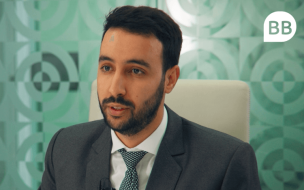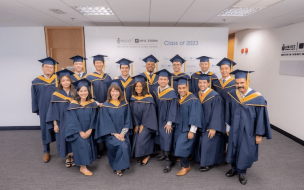The Europe based business schools dominated a 2015 ranking in which five new programs are included for the first time — highlighting the growing appetite for financial training six years on from the global financial crisis.
“Competition for the number one spot gets tougher every year,” said Jacques Olivier, professor of finance and MiF program director at HEC Paris.
The FT rankings rate the best 50 full-time finance programs for students with little or zero experience, as well as the top five full-time programs for experienced participants. The rankings are based on a survey of business school graduates, which measures how successful they have been in their careers since graduating.
HEC Paris of France did not come top in any one metric but scored strongly on all measures. HEC Paris’ alumni have the fifth highest salaries three years after graduation — $93,000 — and its pre-experience Msc in International Finance is ranked third on value for money.
The business school also shares the highest score for alumni aims achieved, at 93%. “Finance continues to be a major discipline at HEC,” Bernard Ramanantsoa, HEC Paris dean, said.
LBS’ alumni have the highest salaries three years after graduating at about $130,000, and toped the aims achieved measure with a score of 87%. Its program was ranked first for career placement success and international course experience. Alumni of LBS also ranked second for career progress and international mobility.
Despite the chastening experiences of the crisis in 2008, demand for specialist finance courses is once more on the rise. Of the five new entrants to the FT rankings, Singapore’s Lee Kong Chain School of Business is the highest, coming third in the post-experience ranking. Its wealth management focused master is ranked third for career progression and second for placement success.
Other high risers include MIT Sloan of the US, as well as ESCP Europe and SKEMA Business School of Europe. ESCP ranked third in the pre-experience ranking. European business schools dominate the top of this table.
ESADE and IE business schools of Spain, EDHEC Business School in France, Swiss school St Gallen and Italy’s Bocconi University are all in top 10.
ESADE came top for international mobility. Josep Franch, ESADE dean, said financial services employers are recognizing international elements of financial training. ESADE’s Master of Finance graduates have worked at JP Morgan, Bank of America and Exane BNP Paribas.
But UK business schools have the highest portion of ranked institutions, accounting for 17 out of 50 pre-experience programs, more than both the US, with eight, and France’s six programs.
London’s Imperial College Business School is the highest ranked UK school, at 11 overall. Imperial is followed in the ranking by Oxford’s Saïd and Warwick business schools, Cass Business School in London, and Cranfield School of Management.
Included in the top 50 are the UK’s Lancaster University Management School and Aston Business School.
Two UK institutions, Cambridge Judge and LBS, also top the post-experience ranking.
UK business schools accounted for more than one-third of all graduates of the top 50 pre-experience programs. They enrolled nearly half of all female and international students. About 85% of students on UK programs were from outside the European Economic Area, particularly from mainland China.
But the clampdown on highly skilled overseas migrants by the UK government appears to have dented UK business schools’ scores on international course experience — 14 are ranked in the bottom half for this criterion.
Business schools and UK employers have argued that increasing visa curbs make it harder to recruit and retain international talent. The 20,700 yearly cap on such visas was breached for the first time last month.
“A lot of people saw the program as a gateway to employment in Europe. If this was the objective, then a lot of them would have gone away unfilled,” said one UK master of finance student.
Meanwhile, ethics and risk management have become more of a focus following the crisis, with a number of financial training programs increasing learning options in these areas. Innovation of masters programs in light of the crisis has become more important.
Ignacio de la Torre, director of the Masters in Finance at IE, said the business school has taken to innovation. IE has partnered the CFA Institute to deliver content, and was the first school to use a trading room as a teaching tool, he said.
RECAPTHA :
82
84
ec
46








